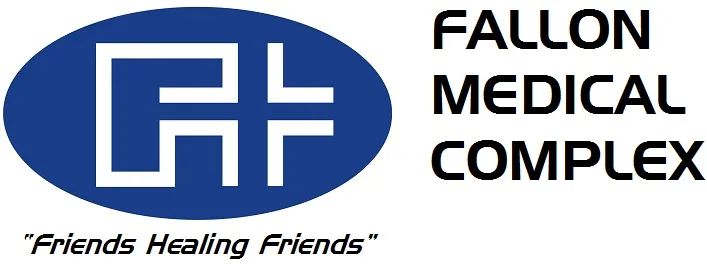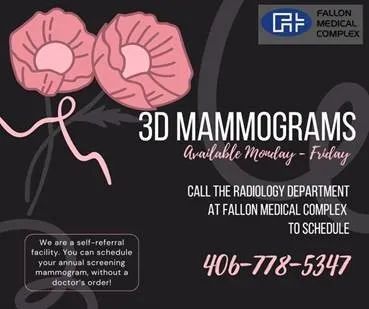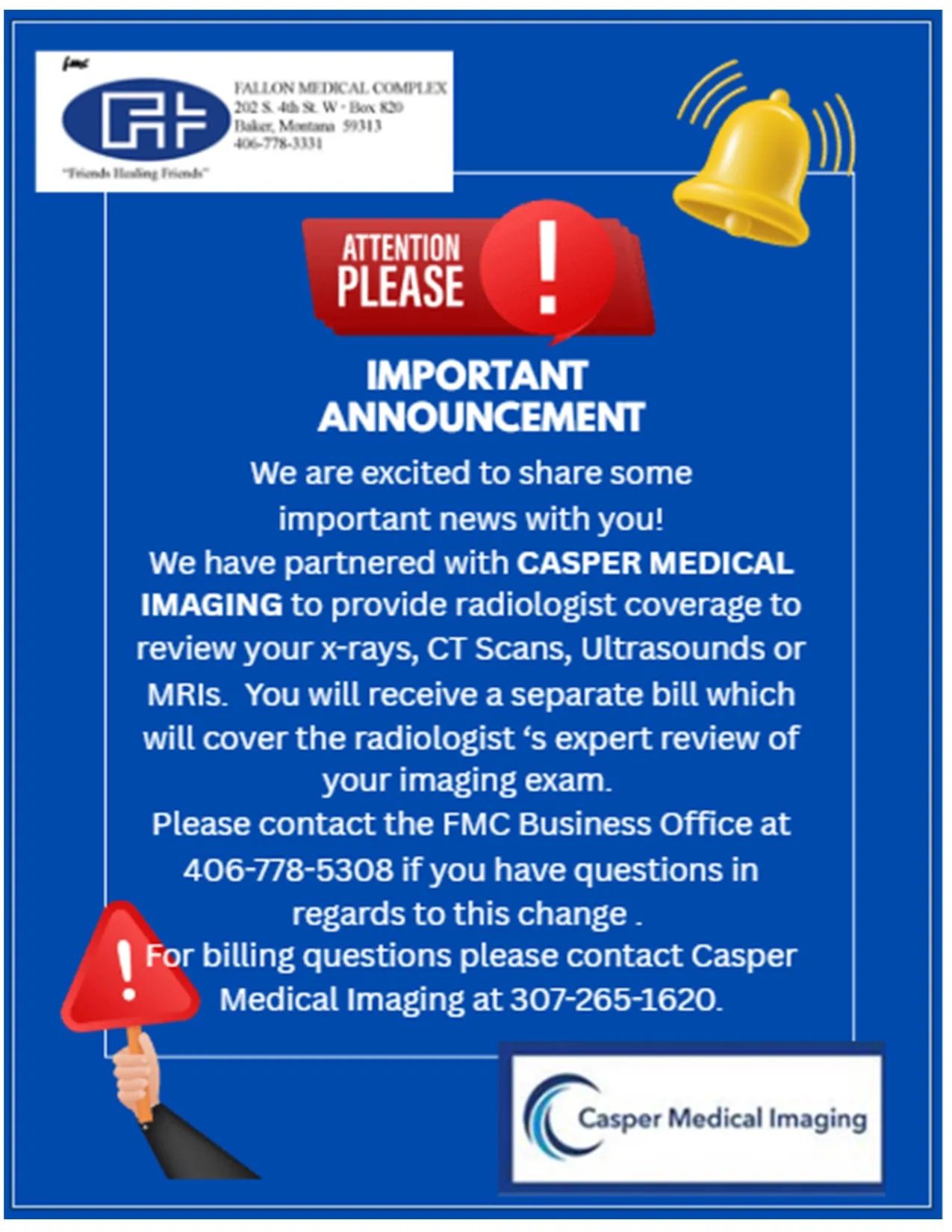FMC SERVICES
Diagnostic Imaging
Johnna Koenig, DI Tech
Phone Number: (406) 778-5347
Hours: Monday – Friday / 7:00am to 5:00pm / On Call Services 24/7
Patients check in at the clinic front desk. South Side Main Hospital Handicap Entrance
Services Provided
Diagnostic Radiography
- Diagnostic radiology is the medical science of producing images of the human body, which can be used to make a diagnosis. Radiography is better described as medical imaging as it has developed considerably from just using x-ray. All of the structures in the body can now be demonstrated through a range of techniques and technology, using sophisticated equipment.
Computerized Tomography - (CT)
- Computed Tomography scanning is a valuable diagnostic tool that provides physicians with views of internal body structures. During a CT scan, multiple x-ray are passed through the body producing cross-sectional images, or "slices" on a cathode-ray tube (CRT), a device resembling a television screen. These images can then be preserved digitally for examination. CT scans have become the imaging exam of choice for the diagnoses of most solid tumors.
Mammography
- Mammography is performed to screen women for signs of breast cancer. It is also used to evaluate a woman who has symptoms of a breast disease, such as a lump, nipple discharge, breast pain, dimpling of the skin on the breast or retraction of the nipple. Screening mammogram are important for early breast cancer detection. The American Cancer Society recommends mammogram screening every year for all women age 40 and older.
Ultrasonography
- A procedure in which high-energy sound waves (ultrasound) are bounced off internal tissues or organs and make echoes. The echo patterns are shown on the screen of an ultrasound machine, forming a picture of body tissues called a sonogram.
Mobile Magnetic Resonance Imaging (MRI)
- Magnetic Resonance Imaging uses radio frequency waves and a strong magnetic field rather than x-ray to provide remarkably clear and detailed pictures of internal organs and tissues. The technique has proven very valuable for the diagnosis of a broad range of pathological conditions in all parts of the body including cancer, heart and vascular disease, stroke, joint and musculoskeletal disorders. MRI requires specialized equipment and expertise and allows evaluation of some body structures that may not be as visible with other imaging methods.
Electrocardiogram (ECG or EKG)
- Electrocardiograms can give you critical information about your cardiac status. The wave forms can help assess condition of the heart and if necessary, begin lifesaving interventions. The wave forms can also aid in both diagnosing and treating cardiac disorders.
Benefits to the Community:
- Performs all services on campus for the convenience of local providers and those outside our community.
- FDA and ACR Accredited Facility
- Board Certified Radiologist
- Board Certified Radiology Technologists


